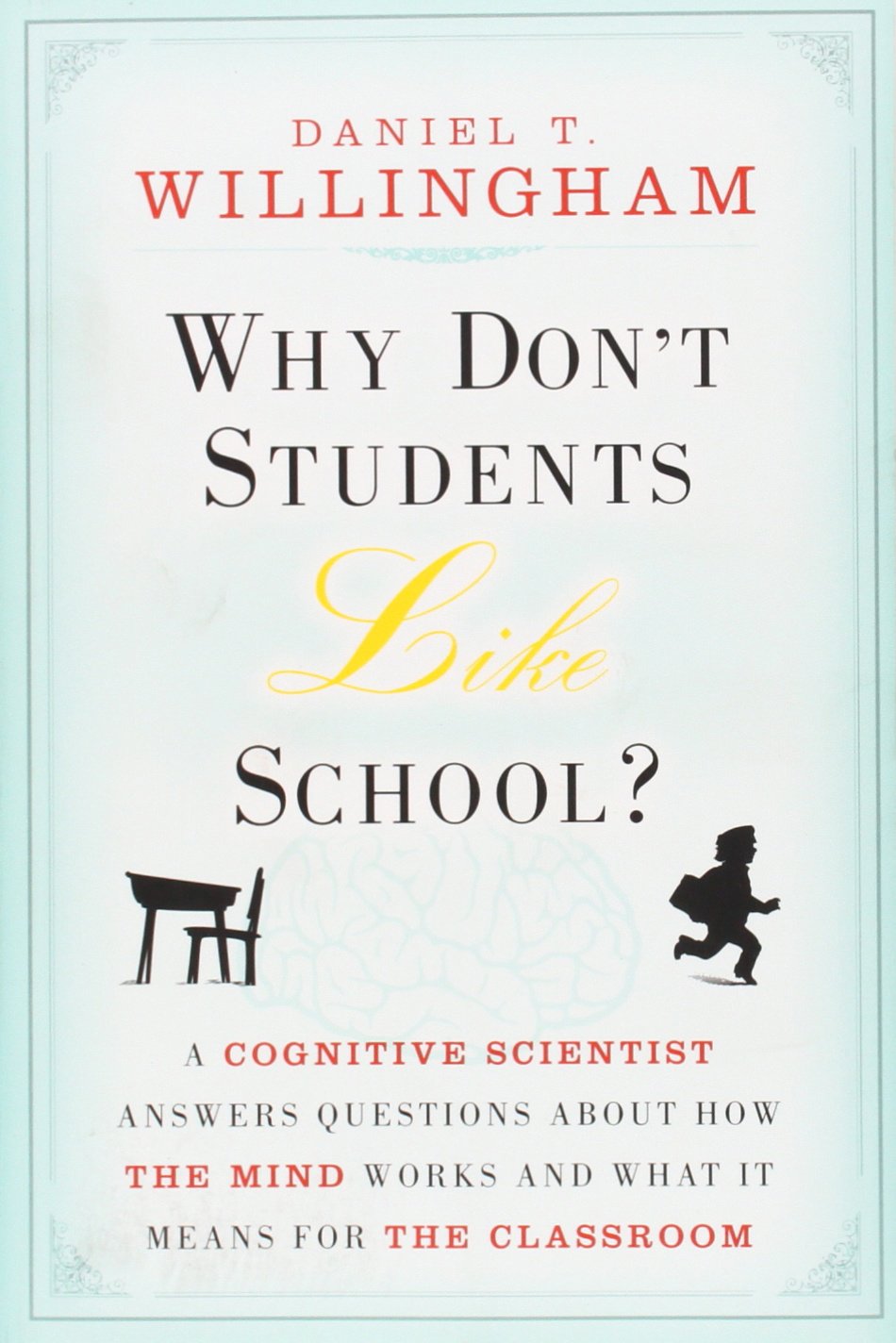
The reason children don’t like going to school is that it interrupts their education.
— Jay Griffith at the RSA
That quote could serve as a summary of this book. It’s a guide for teachers to make their classroom time more effective, so that students will be engaged and will learn useful things in their time in school.
The book discusses nine principles of the mind. Here they are, with some of my notes on each.
People are naturally curious, but they are not naturally good thinkers.
Think of to-be-learned material as answers, and take the time necessary to explain to students the questions. This can pique their curiosity without forcing them to think too much.
Factual knowledge precedes skill.
It is not possible to think well on a topic in the absence of factual knowledge about the topic. Even though rote learning is unfashionable, it is to some extent necessary in order to build a base for more creative learning.
Memory is the residue of thought.
The best barometer for every lesson plan is “Of what will it make the students think?” Teachers should review each lesson plan in terms of what the student is likely to think about. Willingham says that may be the most general and useful idea that cognitive psychology can offer teachers.
We understand new things in the context of things we already know.
What do students already know that will be a toehold on understanding this new material?
Always make deep knowledge your goal, spoken and unspoken, but recognise that shallow knowledge will come first. This relates to the previous point that factual knowledge precedes skill.
Proficiency requires practice.
Think carefully about which material students need at their fingertips, and practice it over time. Rote learning and practice again. The challenge is to do this without too much boredom.
Cognition is fundamentally different early and late in training.
Strive for deep understanding in your students, not the creation of new knowledge.
Children are more alike than different in terms of learning.
Knowledge of students’ learning styles is not necessary. Think of lesson content, not student differences, driving decisions about how to teach. The current consensus is that learning styles (visual, auditory, kinaesthetic, etc.) do not actually differ to any significant degree between students.
Intelligence can be changed through sustained hard work.
Always talk about successes and failures in terms of effort, not ability. It’s important that students realise that they can actually make themselves smarter with the right kind of effort.
Teaching, like any complex cognitive skill, must be practised to be improved.
Improvement requires more than experience; it also requires conscious effort and feedback.
Now all this is great stuff, but it doesn’t directly address one of the fundamental issues: Children don’t like school because they love freedom. Until we sort that out, kids will keep echoing Calvin’s universal complaint:

Pingback: The Homework Myth — Alfie Kohn | Bennettarium